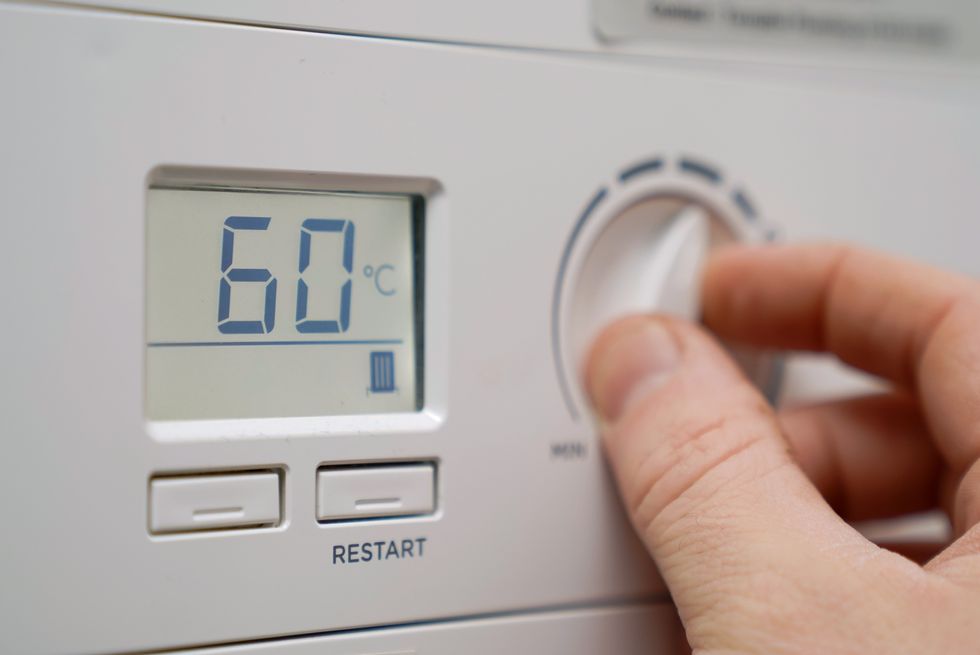Landlords are operating on shifting sands - these are the key steps to take to improve your EPC amid new rules, says expert

An expert shared advice for landlords
| GETTYAs landlords in England and Wales will need to ensure their properties achieve an Energy Performance Certificate with a minimum C rating by 2030, due to new rules by the Government, property expert Jonathan Rolande exclusively shares advice
Don't Miss
Most Read
Every property in the UK is legally required to have an Energy Performance Certificate (EPC) assessment if they are selling, leasing or renting a property. They are calculated on the amount of energy used per square metre and their level of carbon emission.
Properties are scored on a scale of one to 100 and given a letter rating from A (good) to G (the worst). The average EPC rating for properties in England and Wales is D.
Landlords are currently trying to operate on shifting sands as new Government regulations come in and the October budget forecast to bring in an increased tax burden for those with assets such as property.
So it’s important to understand what steps people in England, Scotland and Wales can take to ensure their properties meet the new requirements. Here’s my advice.

The expert shared advice
| PAUse energy-efficient lighting
Replacing light bulbs with LEDs is a simple way to improve your energy efficiency. According to the Energy Saving Trust (EST), switching from 50-watt halogen bulbs could save you £4 per lightbulb over the course of a year as well.
Around the house, the EST says it’s still common to find inefficient bulbs in ovens, cooker hoods and security lights so check these first.
Install a smart meter
A smart meter helps you monitor and manage energy usage in the home, which can improve the EPC rating of a property.
Many energy providers also offer the best deals to those with a smart meter, so it’s good news for any tenants who will welcome a lower energy tariff.
Insulate your home
In an uninsulated home, up to 25 per cent of heat can be lost through the roof.
This can increase energy bills and lower an energy performance rating. How much this will cost depends on when the house was built but loft insulation is a good place to start.
Walls are another place where heat is lost and it is typically more expensive to insulate an older home than one built after cavity walls became commonplace. There are Government schemes for insulation which could be worth looking into.
Renewable energy
Renewable energy options are becoming more commonplace and they are not only a way to improve your EPC but can help lower bills, making your property more attractive to renters. Solar panels are one of the most common ways to use renewable energy and are worth looking at particularly if you have a good amount of roof space and a south or west facing roof you can use.
As well as using the energy, it can be possible to sell any excess, but this will require a way of storing the energy generated, such as a battery.
LATEST DEVELOPMENTS
 Jonathan Rolande is a property expert | JONATHAN ROLANDE
Jonathan Rolande is a property expert | JONATHAN ROLANDEWindows
Windows are another place where heat escapes and draughts can come in, so double or even triple glazing of windows will help increase energy efficiency and help soundproof against street – or other - noises. Windows come in different energy ratings, and the costs change accordingly.
But the Energy Saving Trust estimates that by installing A-rated double glazing to a semi-detached house, you could save £195 and move towards that C rating.
Get a new boiler
Modern condensing boilers are required to be at least 92 per cent efficient, so for every unit of fuel it consumes, 92 per cent can be used by you. This saves money and means a reduction in carbon emissions, which is perfect for landlords looking to meet the government’s new targets.
On that note, new legislation means that any home built after 2025 will not be allowed to have a gas boiler installed, but this ban does not apply to homes built before 2025.
However, the long-term strategy is to phase out gas boilers by 2035, so it is worth looking at alternatives like a heat pump if you are planning on keeping a property for the long haul.
Jonathan Rolande is a property expert from the National Association of Property Buyers










